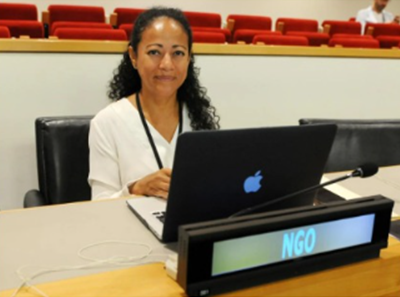20 February – 3 March 2023
Text by Liliana Rodriguez Cortes
Delegate of the International Ocean Institute to the United Nations in New York

The Resumed fifth session of the Intergovernmental Conference (IGC) on an international legally binding instrument (ILBI) under the United Nations Convention on the Law of the Sea (UNCLOS) on the conservation and sustainable use of marine biological diversity of areas beyond national jurisdiction (BBNJ), is being held at the United Nations Headquarters from 20 February to 3 March 2023.
During the opening remarks the President of the Conference, Ms Rena Lee of Singapore, encouraged all Delegates to continue working on the “further refresh text” of the August 2022 Conference, “building bridges that will help the consensus rather than aiming to achieve the desired words and phrases in every provision of the text”.
The “further refreshed text” reflects broad agreement and proposals on the four elements of the negotiation package: marine genetic resources, including questions on the sharing of benefits; measures such as area base management tools, including marine protected areas; environmental impact assessment; and capacity-building and the transfer of marine technology. While consensus on an agreement during this session may be or not within reach, there is great hope that significant results will be achieved - perhaps even a new agreement for the oceans which bridges some of the lacunae the third Conference on the Law of the Sea were not able to fill with UNCLOS.
As it did with the UNCLOS process, the IOI is tracking the BBNJ process, injecting as appropriate into the deliberations the core values of the IOI and IOI founder Elisabeth Mann Borgese’s vision which is closely aligned with many of the elements now being considered. It also reflects the most recent developments in its work, but recognises that significant work also lies beyond the conference with respect to assisting States, mainly developing States, in the effective implementation of an eventual Agreement. The IOI’s long legacy of supporting intergovernmental negotiations and implementation of their outcomes through the building of capacity has never been more relevant.
Elisabeth Mann Borgese’s mantra, “we must save our oceans if we are to save ourselves* ” is increasingly being recognized as veritas, and the IOI remains at the forefront of assisting the International Community, States and local communities in this mission.
Follow the latest developments on the BBNJ process on www.un.org/bbnj and make sure you subscribe to our bi-monthly news bulletin, IOInforma to read the IOI’s latest news on these and related developments.
*“We must save our oceans if we are to save ourselves,” E Mann Borgese in her bestseller, The Drama of the Oceans. (The Drama of the Oceans; Borgese, Elisabeth Mann; 1975; Publisher New York, H.N. Abrams)
Liliana Rodriguez Cortes
Delegate of the International Ocean Institute (IOI) to the United Nations
